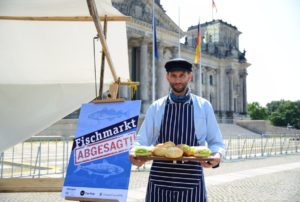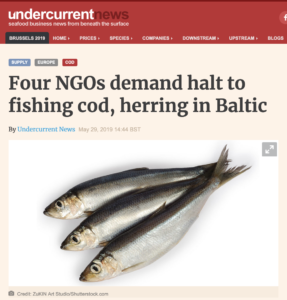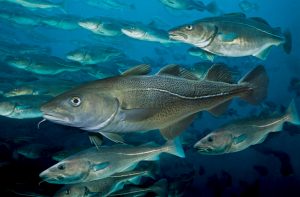
Brussels, June 19, 2019:– Following yesterday’s EU Council approval of a ‘general approach’ for €6.14 billion, for the 2021-2027 round of the European Maritime and Fisheries Fund (EMFF), NGOs released a briefing today highlighting serious mismanagement of the EMFF in Denmark, and called for greater political and legal scrutiny to avoid abuse of the fund in other EU countries [1].
The briefing, titled Mismanagement of European Maritime and Fisheries Fund Sees Taxpayers’ Money Vanish into the Wrong Pockets, published by ClientEarth and Our Fish, summarises a report by the Danish Court of Auditors (Rigsrevisionen) [2] concerning the mismanagement of the European Maritime and Fisheries Fund in Denmark – worth €117 million during the period 2014- 2017.
The Rigsrevisionen report strongly criticises Danish authorities’ management of EMFF money, finding that there were extensive errors and irregularities in the management of the funds. Findings include:
- Millions of euros have been paid, in contravention of regulations.
- Evidence of conflicts of interest, and use of front men and fraud.
- Errors and irregularities were so frequent in the sample that Denmark’s Court of Auditors assessed that the Ministry of Foreign Affairs should look for evidence of fraud in all cases.
- Public money was given to fishers who should have been excluded from funding due to having broken EU fisheries laws.
- Public money was given for vessels that did not improve the environmental selectivity of their activities.
“This example of the abuse of EMFF money should be read, understood and acted upon by everyone involved in decision-making regarding the EMFF – in Denmark, and in all EU Member States that receive this public funding,” said ClientEarth lawyer Flaminia Tacconi.
“Bad management and fraudulent use of the EMFF must be tracked down and stopped – and misappropriated funds reclaimed. Taxpayers’ money cannot be misused to reward bad behaviour, at the expense of environmentally sustainable fishing operations, or operators that truly need EMFF support to improve their sustainability and viability.”
“At a time when our oceans are under more pressure than ever, the EU and its Member States must ensure a greater level of political and legal scrutiny to avoid millions of euros of taxpayers’ money being used to exacerbate overfishing,” said Rebecca Hubbard, Programme Director for Our Fish.
“Similar investigations must be prepared by auditors in every EU member state where these public funds have been handed out, to guard against mismanagement and fraud, and secure sustainable fisheries for all European citizens. This is especially critical in light of the EU’s ambition to ensure investments help address the climate crisis, which is inextricably linked to a healthy, resilient ocean”.
ClientEarth and Our Fish welcome that OLAF (The European Anti-Fraud Office) has confirmed that it has opened an investigation into the Danish case, and that the European Commission has interrupted reimbursement payments of approximately DKK 150 million to Denmark for a period of up to six months in order to limit the EU fund’s risk of undue payments, while identifying and managing the identified issues [3].
ENDS
Downloads:
Contacts
Dave Walsh, Communications Advisor, Our Fish, dave@our.fish, +34 691 826 764
Diane Vandesmet, Events and Communications Officer, ClientEarth, DVandesmet@clientearth.org, +32 28 08 81 27
Notes:
[1] European Maritime and Fisheries Fund (EMFF), 2021-2027
http://europa.eu/rapid/press-release_IP-18-4104_en.htm
[2] The “official” English translation of the report introduction and conclusions is available here: http://uk.rigsrevisionen.dk/publications/2018/12018/
The “unofficial” English translation of the bulk of the report is available here:
The full Danish original version of the report is available here:
http://www.rigsrevisionen.dk/media/2104921/sr0118.pdf
[3] http://www.rigsrevisionen.dk/media/2105040/701-19.pdf










